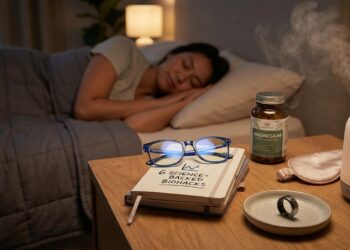Introduction
The Pervasiveness of 3 A.M. Awakenings
Waking up at 3 A.M. can be both puzzling and frustrating for many. This experience is not merely an inconvenience; it often carries with it implications for one’s overall well-being. It’s a phenomenon many people encounter at different stages of life, and understanding the reasons behind such nocturnal disturbances can pave the way toward better sleep quality. This article explores the various factors that can lead to those disruptive early morning wake-ups, ranging from biological rhythms and lifestyle choices to mental health and environmental influences. By shedding light on these causes, individuals can start to piece together solutions to improve their nighttime rest.
For countless individuals, waking up at 3 A.M. isn’t an isolated incident. Consider Sarah, a full-time professional in her 30s. After experiencing significant life changes at work, she began waking up at this precise hour, mulling over decisions and next steps. Similarly, Tom, a retiree, finds himself tossing and turning at this hour, unable to shake off the worries from the day. Both of these individuals illustrate how universal this struggle can be, occurring across different demographics and life circumstances.
What Makes You Wake Up?
Understanding the Mechanics of Sleep To effectively address frequent awakenings, it’s essential to understand our body’s natural sleep mechanisms. Sleep isn’t just a passive state; it’s a dynamic process involving various cycles:
- Transition and Light Sleep: This is where individuals start drifting into sleep, experiencing lighter stages.
- Deep Sleep: This stage is crucial for physical restoration and a strong immune system.
- REM Sleep: Known for vivid dreaming, this stage becomes longer as the night progresses.
Frequent awakenings at 3 A.M. often disrupt the natural flow of these cycles and can be indicative of stress, insomnia, or health conditions.
Contributing Factors to 3 A.M. Awakenings
The reasons behind waking up at 3 A.M. can vary vastly among individuals. Here are some common contributors:
- Circadian Rhythms: Our body operates on a circadian rhythm, the internal clock regulating sleep and wake cycles. Sometimes, shifts in this rhythm can lead to early awakenings.
- Stress and Anxiety: Emotional turmoil can hinder the ability to fall back asleep after waking. With the increase in heart rate and adrenaline rushes, sleep becomes elusive.
- Medical Conditions: Illnesses like sleep apnea, restless leg syndrome, or even conditions as common as arthritis can serve as disruptive forces during the night.
- Medication Side Effects: Certain medications can impact sleep quality, causing unintended awakenings and affecting sleep duration.
Steps Toward Better Sleep
Fortunately, recognizing the underlying causes of nighttime awakenings is the first step toward mitigating them. Here are several strategies that can help improve overall sleep quality:
- Establish a Regular Sleep Schedule: Going to bed and waking up at the same time can help reinforce your body’s natural rhythms.
- Create a Relaxing Bedtime Routine: Engaging in calming activities like reading or meditating can signal to your body that it’s time to wind down.
- Limit Blue Light Exposure: Electronics can disrupt melatonin production. Opt for an hour of screen-free time before bed.
- Evaluate Your Sleep Environment: Make adjustments to your bedroom. Consider factors such as light, noise, and comfort—elements that significantly contribute to sleep quality.
- Address Underlying Health Concerns: Consult a healthcare professional to discuss potential medical issues contributing to sleep disturbances.
Awakening at 3 A.M. can feel like an insurmountable hurdle, impacting mood and productivity for the day ahead. However, by understanding the multifaceted reasons for these awakenings and implementing effective strategies, individuals can gain control over their sleep patterns. Each individual’s experience is unique, and finding personalized solutions is key to supporting restful nights and restorative sleep. By prioritizing sleep and addressing contributing factors, one can move toward more peaceful, uninterrupted nights.[1][2]
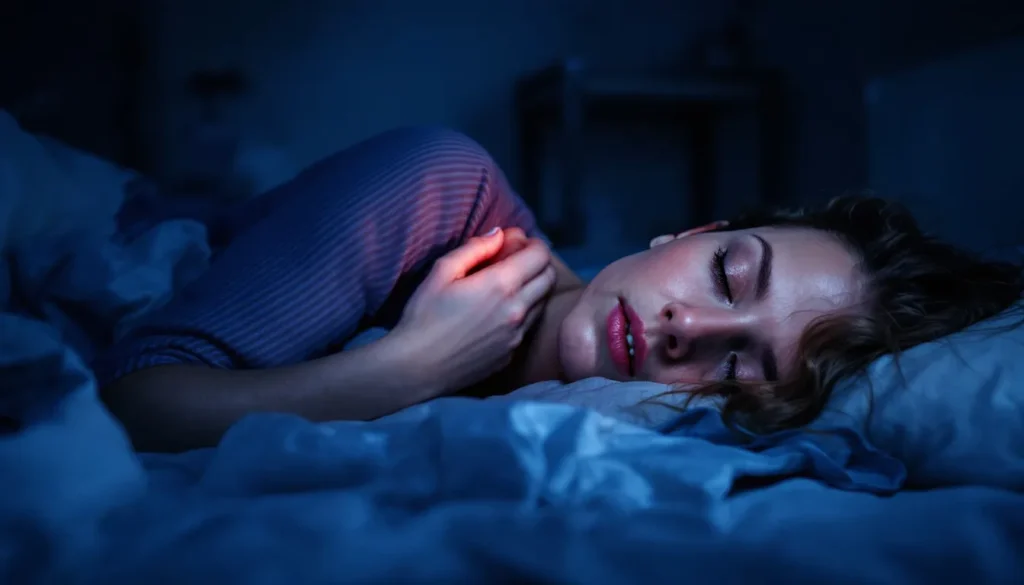
Circadian Rhythm and 3 AM Waking
Understanding the role of circadian rhythms in sleep can provide valuable insight into why some individuals find themselves waking at 3 A.M. The body operates like a finely tuned clock, and when these rhythms are disrupted, the consequences can be numerous and frustrating.
Role of Circadian Rhythm
Circadian rhythms are the internal processes that regulate the sleep-wake cycle, roughly following a 24-hour period. They are influenced by various external cues, such as light and darkness, which are crucial for maintaining a regular sleep cycle. At their core, circadian rhythms help control when we feel awake and when we should sleep. Let’s draw on an example: Alex, a college student, used to struggle with waking up at odd hours, including 3 A.M. After digging deeper, he discovered that his late-night study sessions and exposure to screens kept his circadian rhythm out of sync. This misalignment caused him to feel alert during the night but lethargic during the day, further exacerbating his sleep issues. Here’s a brief overview of how circadian rhythms function:
- Hormonal Regulation: The release of melatonin, often referred to as the “sleep hormone,” increases in the evening as it gets dark, prompting feelings of sleepiness. Conversely, cortisol, the “stress hormone,” peaks in the morning, preparing the body for wakefulness.
- Sleep Cycles: A typical sleep cycle lasts about 90 minutes and includes various stages, including light sleep, deep sleep, and REM sleep. Disruptions to the circadian rhythm can lead to incomplete sleep cycles, creating difficulty in maintaining uninterrupted sleep, especially around 3 A.M.
Factors Affecting Sleep Patterns
While the circadian rhythm plays a fundamental role in determining sleep patterns, numerous factors can disrupt this delicate balance, leading to unwanted awakenings. Below are several factors to consider:
- Environmental Influences:
- Light Exposure: Light is a powerful cue for circadian rhythms. Experiencing light at night, whether from streetlights or the blue light emitted by screens, can trick the body into thinking it’s daytime.
- Noise Disturbances: Everyday sounds, from traffic to household activity, can disrupt sleep continuity, causing awakenings during the night.
- Lifestyle Choices:
- Inconsistent Sleep Schedule: Regularly changing sleep and wake times—common among shift workers or the socially adventurous—can confuse the body’s internal clock.
- Caffeine and Alcohol: Consuming these substances, particularly in the hours leading up to bedtime, can inhibit the body’s ability to initiate and maintain deep sleep.
- Stress and Anxiety:
- Stress often triggers the body’s fight-or-flight response, promoting wakefulness during the night. As previously mentioned, Alex’s busy study schedule led to heightened stress levels, which played a significant part in his 3 A.M. awakenings.
- Health Conditions:
- Sleep Disorders: Conditions such as insomnia or sleep apnea directly affect the ability to stay asleep. Individuals with insomnia may find themselves waking up multiple times, while those with sleep apnea may experience breathing interruptions that rouse them from sleep.
- Chronic Health Issues: Conditions like diabetes, heart disease, or hormonal changes associated with menopause can also play a detrimental role in sleep quality. Many individuals experiencing menopause report increased awakenings due to hot flashes or hormonal fluctuations.
- Age-Related Changes:
- As individuals age, sleep patterns naturally evolve. Older adults often experience lighter sleep, making them more susceptible to waking easily. Inconsistent health and lifestyle factors can further intensify these disruptions.
The interplay of circadian rhythms and various external and internal factors can deeply impact sleep quality, leading to unwanted awakenings at inconvenient times, such as 3 A.M. Recognizing and addressing these influences can help foster a more balanced sleep routine. In doing so, individuals like Alex can reclaim much-desired restorative sleep and enhance their overall well-being. Understanding one’s body and making small adjustments can lead to smoother and more restful nights.[3][4]

Stress and Anxiety
Stress and anxiety are common culprits in the struggle for a good night’s sleep. Many individuals find themselves waking up at 3 A.M., tossing and turning as their minds race with thoughts and worries. Understanding the relationship between stress, anxiety, and sleep is crucial for alleviating these disturbances.
Impact on Sleep
Stress and anxiety affect every aspect of life, especially sleep. When stress levels rise, the body enters a heightened state of alertness as part of its natural fight-or-flight response. This physiological reaction is designed to protect us from potential threats, but in the modern world, it often serves to disrupt our ability to relax and fall asleep. For instance, consider Lisa, a busy marketing executive. As deadlines loom, her stress levels escalate, causing her to wake up around 3 A.M., her mind racing with work concerns. This phenomenon isn’t rare—research shows that a significant number of adults frequently wake up during the night due to stress. Here are some ways stress can influence sleep:
- Increased Hormone Levels: Under stress, the body releases cortisol and adrenaline. These hormones can raise heart rate and blood pressure, making it difficult to relax. Cortisol levels, in particular, naturally spike between 2 a.m. and 3 a.m., further complicating matters.
- Racing Thoughts: Nighttime is often when the day’s worries come flooding back. Without the distractions of the day, worries about work, relationships, or financial matters can become overwhelming, leading to feelings of anxiety that prevent restful sleep.
- Physical Symptoms: Stress can also manifest physically. Symptoms like muscle tension, headaches, or a racing heart can make it challenging to drift off or stay asleep.
Strategies to Manage Stress
Managing stress effectively can lead to improved sleep quality. Here are several strategies that individuals, like Lisa, can incorporate into their routines to promote relaxation and combat nighttime awakenings:
- Establish a Relaxing Bedtime Routine: Creating a consistent pre-sleep routine signals to your body that it’s time to wind down. This might include activities such as:
- Reading a book or listening to calming music.
- Engaging in gentle stretches or yoga.
- Practicing meditation or deep-breathing exercises.
- Limit Screen Time Before Bed: The blue light emitted from phones, tablets, and computers can interfere with melatonin production, making it harder to fall asleep. Aim to turn off devices at least an hour before bed.
- Practice Mindfulness and Relaxation Techniques: Techniques such as progressive muscle relaxation, guided imagery, or mindfulness meditation can be effective in calming a racing mind and facilitating sleep. For example, deep breathing exercises can help lower heart rates and reduce anxiety.
- Jot Down Worries: Setting aside time during the day to address stressors can be beneficial. Consider writing down worries or a to-do list before bed. This practice, often referred to as a “brain dump,” allows you to confront stresses with a plan, reducing anxiety when you hit the pillow.
- Incorporate Physical Activity: Regular exercise can be a great antidote to stress. Physical activity helps reduce cortisol levels, which can enhance sleep quality. However, it’s advisable to avoid vigorous workouts close to bedtime that might invigorate rather than relax you.
- Evaluate Your Sleep Environment: Creating a bedroom atmosphere conducive to sleep is vital. Some tips include:
- Keeping the bedroom dark, quiet, and at a comfortable temperature.
- Using earplugs or a white noise machine to block distracting sounds.
- Opting for blackout curtains to minimize light exposure.
- Consult a Professional: If stress and anxiety are persistent and significantly impact sleep, it may be beneficial to seek professional help. Cognitive Behavioral Therapy for Insomnia (CBT-I) can be particularly effective in addressing the thoughts and behaviors that contribute to sleep difficulties.
- Consider Dietary Changes: Certain foods can help improve sleep. A small, healthy snack may help, particularly one rich in tryptophan, which can promote sleepiness. Foods like:
- Banana with almond butter
- Greek yogurt with honey
- A small bowl of oatmeal
Stress and anxiety can wreak havoc on sleep quality, leading to nightly awakenings around 3 A.M. However, by implementing practical strategies to manage stress and create a healthy sleep environment, individuals can enhance their ability to relax and improve their overall sleep quality. Remember, it’s not about eliminating stress entirely but learning how to navigate it more effectively to enjoy restorative sleep.[5][6]
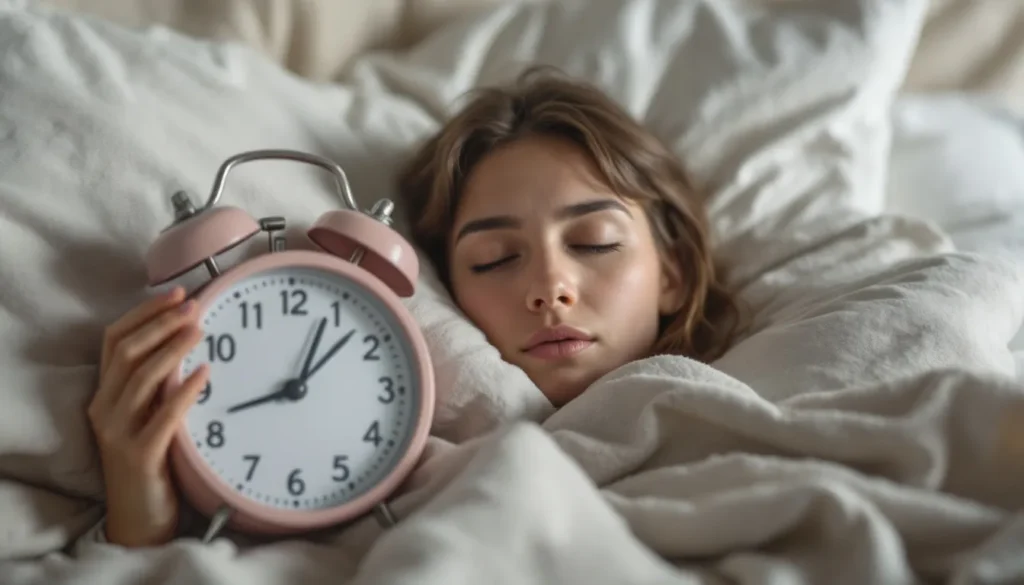
Poor Sleep Environment
A conducive sleep environment plays a pivotal role in achieving quality rest. However, many often overlook how noise and light can disrupt sleep patterns, leading to frequent awakenings at times like 3 A.M. Understanding these factors can empower individuals to create a more peaceful sleeping atmosphere.
Noise and Light
Noise and light are two of the most common environmental culprits that can significantly affect sleep quality. Let’s consider each in detail:
The Effects of Noise
- External Disruptions: Sounds from traffic, sirens, or even a neighbor’s late-night party can jolt you awake. For instance, John, a city dweller, frequently found himself waking up at odd hours due to the sounds of cars and construction work outside his window.
- Internal Noise: Even the sounds within a household—like a pet moving around or people talking—can interrupt sleep. For example, Mary, a mother of two, often finds herself awakened by her children’s nighttime chatter, making it challenging for her to stay asleep.
The body naturally transitions through different sleep stages that fluctuate in depth and receptivity to external stimuli. While deeper sleep stages make one less likely to wake up, the lighter stages can be easily disrupted by noise. Many individuals notice they are more alert, especially as the night approaches daybreak.
The Impact of Light
- Natural Light: Light exposure, especially in the morning, helps set the circadian rhythm. However, the presence of light during the night can make it difficult for individuals to fall back asleep. For example, Jason found himself consistently waking up earlier than he wanted because daylight seeped through his bedroom curtains.
- Artificial Light: The blue light emitted by screens also has an impact. Using phones or watching TV before bed can trick the body into thinking it’s daytime, making it harder to fall asleep. Emma, who often scrolled through her phone in bed, realized her late-night screen time was directly related to her inability to drift off peacefully.
Bedroom Setup for Better Sleep
Creating an ideal sleep environment can drastically improve sleep quality and reduce the chances of waking up during the night. Here are some actionable tips for optimizing your bedroom:
- Minimize Noise:
- Invest in Soundproofing: Consider using heavy curtains or acoustic panels to dampen external sounds. White noise machines or fans can also help mask disruptive noises effectively.
- Earplugs: For those especially sensitive to noise, a pair of high-quality earplugs can make a world of difference.
- Control Lighting:
- Blackout Curtains: Installing blackout curtains can prevent early morning light from disrupting your sleep cycle and help create a dark, tranquil environment.
- Night Lights: If a complete blackout isn’t feasible, opt for dim night lights or use a sleep mask to block out light.
- Optimal Temperature:
- The ideal sleeping temperature for most people is between 60-67°F (15-19°C). Using a fan or air conditioning can keep the room comfortable, while cozy blankets can keep you warm if needed.
- Little adjustments in temperature can substantially enhance sleep comfort. Consider investing in breathable bedding materials like cotton or linen.
- Comfortable Bedding:
- Ensure your mattress and pillows support your preferred sleeping position. Whether you sleep on your back, side, or stomach, the right support and comfort level can significantly impact sleep quality.
- Regularly replace pillows, as they can lose their structure and become less supportive over time.
- Declutter Your Space:
- A tidy environment promotes relaxation. Consider organizing your bedroom to minimize visual distractions that can add to stress or anxiety.
- A well-kept space can foster a calm atmosphere, making it easier for your mind to unwind.
- Remove Electronic Distractions:
- Charging phones and tablets outside the bedroom can help remove temptations to check them during the night. This simple action can also reduce the blue light exposure before bedtime.
Investing time and effort into optimizing your sleep environment can lead to significantly better rest and reduce the likelihood of waking up at 3 A.M. or experiencing restless nights. By addressing factors like noise and light, and ensuring your bedroom is a soothing sanctuary, you can cultivate healthier sleep habits that contribute to overall well-being. Now, envision your ideal sleep setup and take small steps toward transforming your bedroom into a haven of peace and comfort.[7][8]
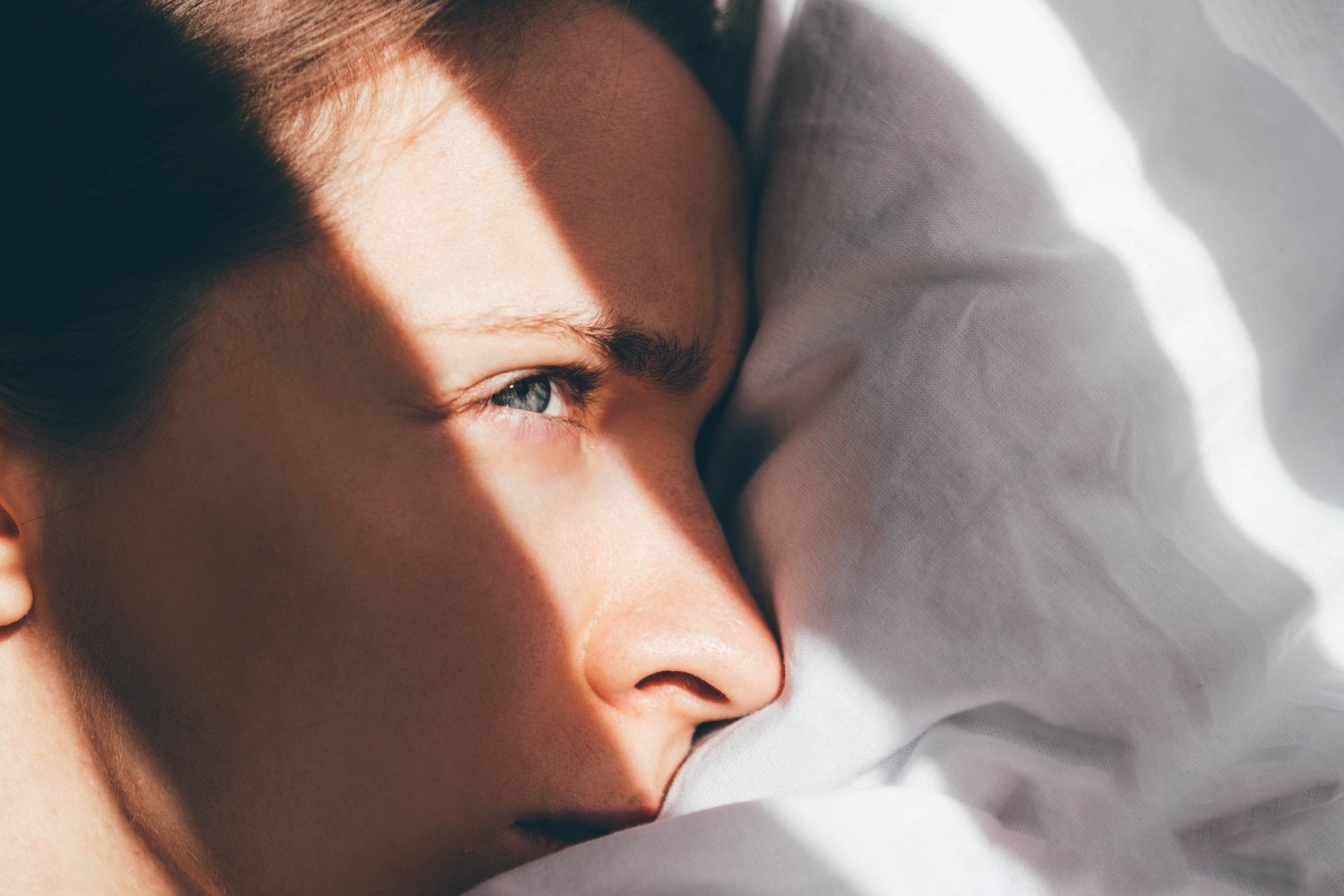
Medical Conditions
When it comes to the common experience of waking up at 3 A.M. and struggling to return to sleep, medical conditions often play a significant role. Both sleep disorders and other underlying health issues can disrupt the delicate balance required for a restful night. Understanding these factors is crucial for identifying solutions and improving overall sleep quality.
Sleep Disorders
Sleep disorders are specific conditions that negatively affect the quality, timing, and duration of sleep. Here are some prevalent sleep disorders that might explain those pesky 3 A.M. awakenings:
- Insomnia:
- Insomnia is one of the most recognized sleep disorders, characterized by difficulty falling or staying asleep. For many, the inability to return to sleep after waking can become a significant issue. Studies suggest that 10% to 20% of the population experiences insomnia, increasing to around 40% among older adults.
- Example: Sarah, who has faced ongoing stress at work, began to experience insomnia. She would often find herself wide awake in the early morning hours, making it difficult to get the necessary rest for her busy days.
- Obstructive Sleep Apnea (OSA):
- OSA is a more serious condition where the airway becomes blocked during sleep, causing breathing interruptions. These gaps in breathing can lead to frequent awakenings throughout the night and may go unnoticed during sleep. For many, the experience involves waking up gasping for air or feeling unrested in the morning.
- Impact: Many people with OSA often believe they are waking due to other reasons, not realizing their breathing issues are the root cause.
- Restless Legs Syndrome (RLS):
- RLS is a condition that leads to uncomfortable sensations in the legs, accompanied by an uncontrollable urge to move them. Symptoms typically worsen at night, resulting in difficulty falling asleep or staying asleep.
- Illustration: Joe often wakes up at 3 A.M., unable to settle back into sleep due to the constant need to move his legs. This not only interrupts his rest but also affects his focus and energy during the day.
- Circadian Rhythm Disorders:
- These disorders involve misalignments between a person’s internal clock and the external world. Conditions such as advanced sleep phase disorder can lead to premature awakenings in the early morning hours, disrupting the ability to achieve quality sleep.
Other Health Issues
In addition to sleep disorders, various health issues can contribute to nighttime awakenings. Here’s a look at some of these underlying conditions:
- Gastroesophageal Reflux Disease (GERD):
- GERD is a digestive disorder where stomach acid flows back into the esophagus, leading to discomfort and heartburn, particularly when lying down. This discomfort can easily awaken individuals during the night.
- Personal Account: Emily often finds herself waking up due to the burning sensation in her chest caused by GERD, disrupting her sleep and leaving her groggy the next day.
- Chronic Pain Conditions:
- Conditions like arthritis, fibromyalgia, or other chronic pain syndromes can severely impact sleep quality. Pain increases at night for many individuals, making it difficult to stay asleep.
- Case Study: Mark has severe arthritis and often wakes up in the middle of the night due to joint pain, unable to find a comfortable position until the medication kicks in.
- Neurological Disorders:
- Neurological conditions, such as Parkinson’s or dementia, can lead to significant disruptions in sleep patterns. These conditions are often linked with increased awakenings throughout the night and difficulty returning to sleep.
- Example: Linda cares for her elderly father with dementia, and she has noticed that he frequently wakes during the night and struggles to achieve restful sleep.
- Hormonal Changes:
- Hormonal fluctuations, especially in women during menopause, can lead to symptoms like hot flashes and night sweats. This can cause disruptions, making it difficult to return to sleep after an awakening.
- Impact: Many women report experiencing increased nighttime awakenings as a result of hormonal changes, leading to frustration over a lack of solid rest.
- Medications:
- Certain medications can also interfere with sleep patterns. Drugs such as corticosteroids or stimulants may lead to increased awakenings and disrupted sleep.
- Example: David was prescribed a new allergy medication that caused insomnia and frequent awakenings, prompting him to consult with his healthcare provider.
Understanding how sleep disorders and health issues contribute to waking up at 3 A.M. is an essential step toward finding solutions and improving sleep quality. If you or someone you know frequently experiences these disruptions, it’s essential to consult with a healthcare provider for a comprehensive evaluation. Addressing the underlying conditions can lead to better rest and overall health, allowing you to wake up feeling refreshed and ready for the day ahead.[9][10]
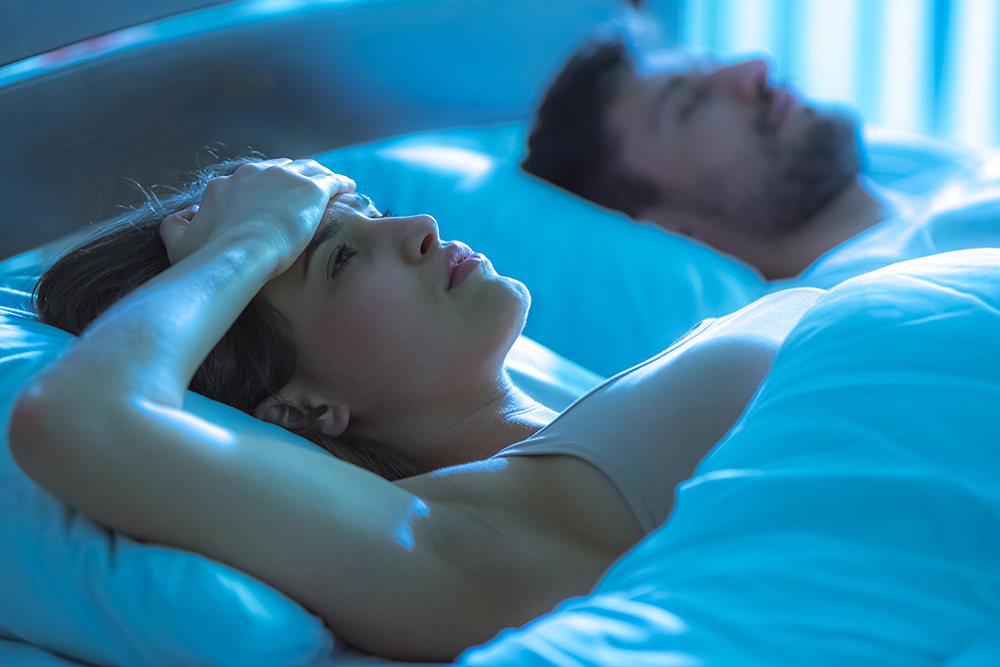
Diet and Lifestyle Choices
Diet and lifestyle choices can significantly affect sleep quality and lead to disruptions such as waking up at 3 A.M. While various external factors can contribute to sleep disturbances, the internal decisions we make regarding what we eat and how much we move play a substantial role in determining our ability to achieve restful sleep.
Late Eating Habits
One of the most impactful lifestyle choices that can disturb your sleep is the timing of your meals. Late-night eating habits can lead to several issues that may interrupt your sleep cycle.
- Digestive Discomfort:
- Eating close to bedtime often leads to discomfort, making it challenging to fall or stay asleep. Heavy meals can trigger heartburn, especially for those with GERD (gastroesophageal reflux disease).
- Example: Mary, an avid night owl, frequently enjoyed large meals just before bed. She soon realized this habit led to nights filled with tossing and turning due to digestive discomfort.
- Blood Sugar Fluctuations:
- Consuming sugary or carbohydrate-heavy foods late at night can cause fluctuating blood sugar levels, which can lead to waking up in the middle of the night. When blood sugar levels drop, the body may react by stimulating hunger or the urge to get up and eat, such as at 3 A.M.
- Tip: Aim to eat dinner at least three hours before bedtime to give your body adequate time to digest the food.
- Late Snacks:
- While some may believe that a late-night snack could help stave off hunger during the night, the choices matter. Foods rich in protein and complex carbohydrates can be beneficial, but heavy or spicy foods should be avoided.
- Recommendations: Healthy options such as Greek yogurt, a small portion of nuts, or a piece of fruit with nut butter can satisfy those late-night cravings while minimizing sleep disruption.
Importance of Regular Exercise
Adopting a regular exercise routine is another essential lifestyle choice that can dramatically enhance sleep quality. Physical activity has a multitude of benefits for both mental and physical health, significantly contributing to better sleep.
- Boosts Sleep Quality:
- Regular exercise helps regulate your body’s circadian rhythm and promotes deeper sleep phases. Research shows that individuals who maintain an active lifestyle generally report improved sleep quality compared to those who do not.
- Personal Experience: Jake, who incorporated jogging into his daily routine, noticed that his overall sleep improved significantly. He no longer experienced frequent wake-ups during the night.
- Releases Endorphins:
- Physical activity leads to the release of endorphins and alleviates feelings of stress and anxiety. This reduction in tension can help you fall asleep faster and enjoy deeper, more restorative sleep.
- Activity Recommendations: Aim for at least 30 minutes of moderate exercise most days of the week. Activities such as brisk walking, swimming, or cycling can be effective options.
- Timing Matters:
- While exercise is beneficial, the timing of workouts can significantly affect sleep. Engaging in vigorous physical activity right before bed may keep you alert, making it difficult to wind down afterward.
- Tip: Ideally, try to finish exercising at least a few hours before bed. Morning or early afternoon workouts can help you maximize both energy levels and sleep quality.
Diet and lifestyle choices dramatically influence sleep quality and the tendency to wake up at 3 A.M. Making conscious decisions about meal timing and ensuring a regular exercise routine can help individuals optimize their sleep. By avoiding late-night eating habits and embracing physical activity, you foster a night of deeper rest and rejuvenation. Those who struggle with sleep-related issues should consider integrating these changes into their daily lives to reap the benefits of improved sleep health. A well-rounded approach, blending healthy eating and active living, paves the way for a peaceful night’s sleep, enabling you to greet each new day with vigor and energy.[11][12]

Technology Use Before Bed
In today’s digital age, technology has become an integral part of daily life, impacting almost every aspect of how we live and sleep. However, the way we use technology—especially before bedtime—can significantly affect our sleep quality, contributing to issues like waking up at 3 A.M. Understanding the implications of technology use, particularly in relation to blue light exposure, can help you forge better sleep habits.
Blue Light Exposure
Blue light is a high-energy visible light emitted from various screens, including smartphones, tablets, and computer monitors. This exposure can profoundly disrupt sleep cycles for several reasons:
- Suppresses Melatonin Production:
- Melatonin, the hormone responsible for regulating sleep-wake cycles, is suppressed by exposure to blue light. When individuals use devices before bed, the body’s natural signal to prepare for sleep is thwarted, leading to difficulty in falling asleep.
- Illustration: Consider Amanda, who often watches movies on her laptop in bed before trying to sleep. She noticed that even though she felt tired, it took her longer to fall asleep than it did when she read a book instead.
- Impact on Sleep Quality:
- Research indicates that prolonged exposure to blue light can lead to lighter sleep stages, reducing the amount of restorative deep sleep. This not only results in more frequent awakenings but can leave you groggy and unrested the next day.
- Personal Experience: Mike, a tech-savvy college student, learned that by midnight gaming sessions affected his focus the following day. He often woke up, feeling unrefreshed, despite spending enough time in bed.
- Effects on Circadian Rhythm:
- Technology use before bed can lead to delays in the circadian rhythm, causing a misalignment between the biological clock and the sleeping pattern. Using devices late into the evening can shift sleep cycles, making it challenging to stick to a regular sleep schedule.
Creating a Technology-Free Bedtime Routine
Establishing a technology-free routine before bed can significantly improve sleep quality and help minimize 3 A.M. wake-ups. Here are some strategies to consider:
- Set a Digital Curfew:
- Aim to turn off all electronic devices at least one hour before bedtime. This time allows your brain to unwind and prepares for restful sleep.
- Tip: Create a “screen-off time” that gradually gets earlier to help your body adjust.
- Engage in Relaxation Techniques:
- Utilize the hour before bed to engage in calming activities like reading a physical book, journaling, or practicing meditation or gentle yoga. These activities can help transition the mind into a more relaxed state.
- Example: Sam replaced his late-night scrolling with a brief meditation session followed by reading—leading to more peaceful nights and less time spent awake in bed.
- Use Apps Wisely:
- If turning off all technology is challenging, consider using blue light filters or settings on devices that adjust screen brightness. Some applications are designed to filter out blue light during evening hours.
- Chairman’s Note: However, it’s still preferable to limit device use overall as screen engagement may stimulate the brain, leading to unexpected wakefulness.
- Create a Relaxing Sleep Environment:
- Coupling your technology-free time with a sleep-conducive environment can enhance its effectiveness. Dim the lights in your bedroom and use soothing scents such as lavender to create a calming atmosphere.
- Practical Tip: Consider layering curtains to block any light from outside sources that may disrupt your sleep.
- Establish a Consistent Sleep Schedule:
- Go to bed and wake up at the same time every day, even on weekends. A regular schedule reinforces your body’s natural circadian rhythm and contributes to more consistent sleep patterns.
- In Practice: Set an alarm on your phone (using the device wisely) for 30 minutes before your intended bedtime to remind you to start winding down.
- Limit Stimulants:
- Avoid caffeine, nicotine, and large meals close to bedtime. Instead, opt for a small, healthy snack that can promote sleep if you’re hungry before bed. Foods like nuts, yogurt, or bananas can be beneficial without disrupting sleep.
Conclusion
Incorporating a technology-free routine in the hour leading up to bed, coupled with an awareness of blue light exposure, can significantly enhance sleep quality and ease those frustrating early morning awakenings at 3 A.M. By adopting these strategies, individuals can lay the groundwork for more restorative sleep, improving overall health and well-being. As you begin to embrace these changes, you’ll likely find that not only do your sleep patterns improve, but your waking hours become more vibrant and productive as well.[13][14]







